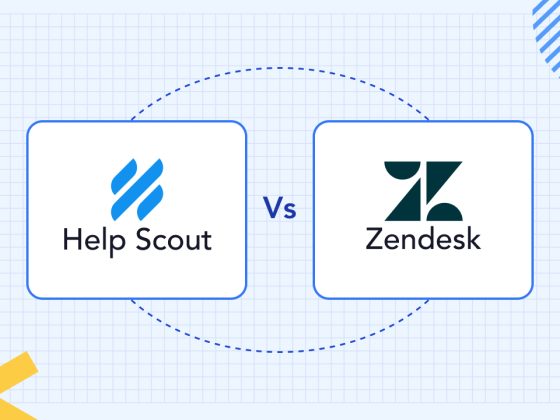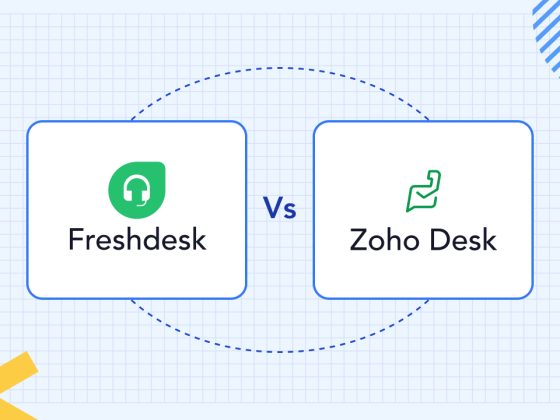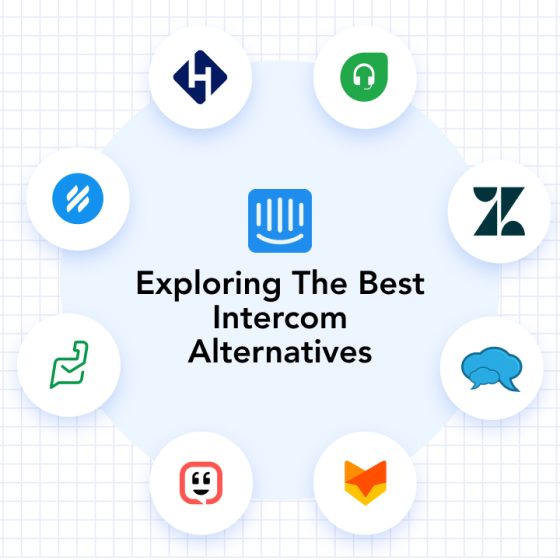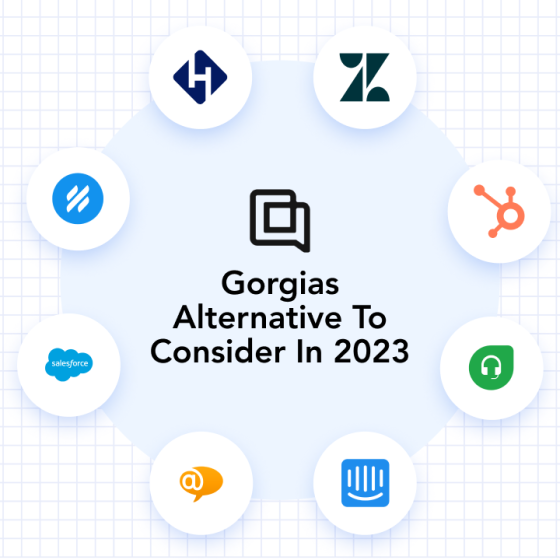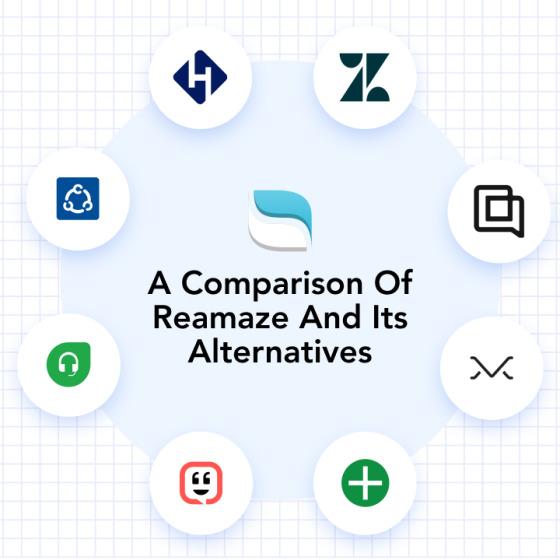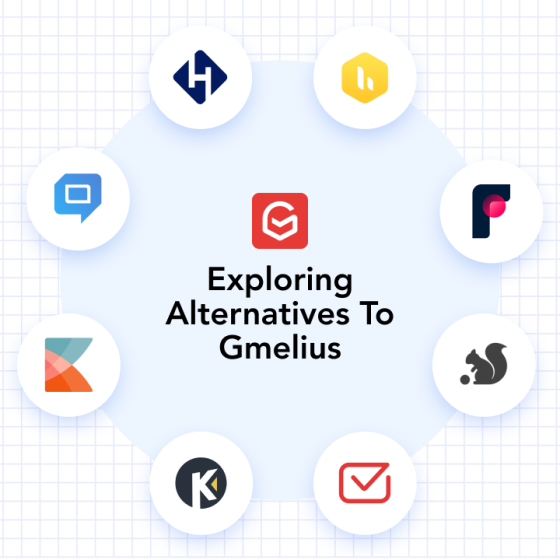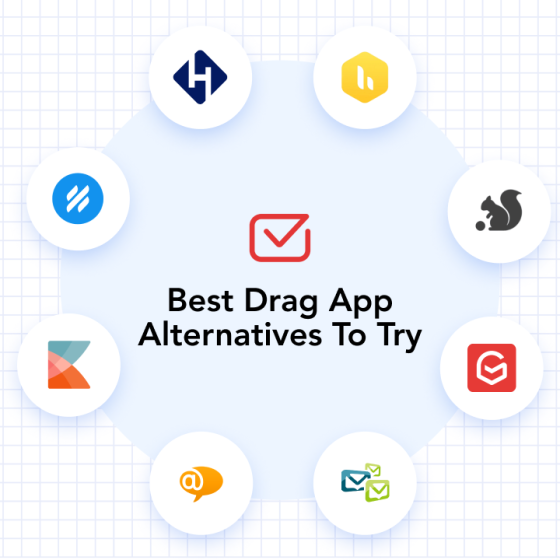Two leading contenders in the customer service platform space, Zendesk and Intercom, have transformed businesses’ customer engagement by offering powerful software solutions that enhance support systems. To select the ideal fit for your business, it is crucial to compare these industry giants and assess which aligns best with your specific requirements.
In this article, we comprehensively do a comparison of Zendesk vs Intercom, examining their key features, benefits, and industry use cases. By exploring their distinct offerings, we aim to assist businesses in making informed decisions when selecting a customer service platform.
Whether you’re a small startup or a large enterprise, understanding the differences and strengths of Zendesk vs Intercom will empower you to take an informed decision.
Let’s begin!
What is Zendesk?
Zendesk is a customer service software that helps businesses manage and improve customer support operations.
Its key features include a ticketing system for support management, a knowledge base for self-service, multichannel support, automation and workflow capabilities, robust reporting and analytics tools, and seamless integration with third-party applications.
What sets Zendesk apart is its user-friendly interface, customizable workflows, and scalability. It caters to a wide range of industries, particularly excelling in e-commerce, SaaS, technology, and telecommunications. It is favored by customer support, helpdesk, IT service management, and contact center teams.
Use cases where Zendesk shines include efficient management of customer inquiries, order issues, and returns in e-commerce, providing prompt and efficient technical support for SaaS companies, and streamlining internal IT support requests for IT service management teams.
Overall, Zendesk empowers businesses to deliver exceptional customer support experiences across channels, making it a popular choice for enhancing support operations.
What is Intercom?
Intercom is a customer messaging platform that enables businesses to engage with customers through personalized and real-time communication. Its key features include live chat and in-app messaging for direct conversations, targeted messages and campaigns for personalized engagement, chatbot capabilities for automation, and product tours to improve user onboarding.
Intercom excels in SaaS, technology startups, e-commerce, and online marketplaces. It is preferred by sales, marketing, and support teams, prioritizing personalized customer communication and real-time engagement.
Use cases where Intercom proves valuable include:
- User onboarding and support in SaaS companies.
- Engaging with early adopters and gathering feedback on technology startups.
- Providing real-time customer support and personalized recommendations in e-commerce businesses.
Overall, Intercom’s focus on personalized messaging, chatbots, targeted campaigns, and in-app communication makes it a popular choice for businesses aiming to enhance customer engagement and deliver exceptional support experiences.
Features: Zendesk vs Intercom
What better way to start a Zendesk vs. Intercom than to compare their features? Here’s a feature-by-feature comparison of Zendesk and Intercom.
01. Ticket Management
Zendesk
- Options for single and multiple shared inboxes that can be used to create, track, and manage support tickets
- Easily offer support on any channel like email, social media, help center, voice, bots, and community forums.
- Agents have access to customer context like order history, loyalty status, and web activity
- Enables collaboration among support agents through internal notes, provides automatic and manual assignments to managers and access to follow-up notifications
Intercom
- The basic plan includes a shared inbox, while the Pro and Premium plans offer multiple shared inboxes
- Tickets can be assigned to suitable agents manually or through automatic workflows. The Premium and Pro plans also provide round-robin assignments
- Team macros enable users to apply predefined sets of actions to tickets with a single click.
- Users can create their own assignment, priority, and ticket chat rules
- Additional features such as saved replies, rules based on conversation tags, conversation ratings, office hours are available
02. AI and Automation
Zendesk
- Zendesk also offers AI-powered chatbots for automating customer support. Its chatbot can handle routine queries, provide self-service options, and escalate complex issues to human agents.
- Zendesk utilizes NLP to comprehend customer queries and provide relevant responses.
- Users can define rules to automate actions like ticket routing, status updates, and notifications based on specific criteria
- Offers sentiment analysis capabilities to analyze customer interactions and identify their sentiment
Intercom
- Fin–their own AI bot resolves 50% of queries by looking at articles, guides, and instructions provided
- Workflow automation with which you can create rules to trigger automated messages, assign conversations, segment users, and more
- Assign conversations to specific teams or agents based on criteria like customer attributes, conversation content, or tags
03. Analytics and Reporting
Zendesk
- Provides a comprehensive reporting system that offers a wide range of pre-built reports and analytics. It covers various aspects of customer support, including ticket volume, response times, and agent performance.
- Allows businesses to compare their support metrics against industry benchmarks
- Create custom metrics and reports based on their unique requirements
- Offers visually appealing data visualizations, such as charts and graphs
- Integrates data from various support channels, including email, chat, phone, and social media, providing a holistic view of customer interactions
Intercom
- Provides real-time reporting that enables businesses to monitor and track key metrics instantly
- Creates customized dashboards, tailoring the reporting views to their specific needs
- Curated reports on performance metrics, conversation volume and trends, and team and agent performance
- Analyze individual conversations to understand customer behavior, preferences, and pain points
- Intercom’s reporting features include user segmentation, which allows businesses to categorize and analyze customer data based on various criteria.
04. Self Service
Zendesk
- Offers a robust knowledge base feature where businesses can create and manage a repository of self-service articles, FAQs, and documentation to address customer inquiries and provide solutions.
- Utilizes AI technology to enhance the search experience within the knowledge base, providing relevant and accurate search results to help customers find answers quickly
- Set up community forums where customers can interact, ask questions, and contribute solutions, fostering a collaborative environment for self-service support
Intercom
- Flexibility to produce and oversee articles in multiple languages, enabling customers to access information in their preferred language
- Provides a feature to create community forums, allowing users to interact with each other and seek assistance
- Using Intercom’s help center, users can create and publish helparticles on various topics
- The editor allows the easy addition of photos, videos, and call-to-action buttons wherever necessary
- Possible to modify content to cater to different audiences, including website visitors and paying clients
Customer Support: Zendesk vs Intercom
Here is a Zendesk vs. Intercom based on the customer support offered by these brands.
Zendesk
Zendesk has a help center that is open to all to find out answers to common questions. Apart from this feature, the customer support options at Zendesk are quite limited. First, you can only talk to the support team if you are a registered user.
You can contact the sales team if you’re just looking around, but you will not receive decent customer support unless you buy their service.
Users must also pay extra to get a real person to talk to them.
With only the Enterprise tier offering round-the-clock email, phone, and chat help, Zendesk support is sharply separated by tiers.
Customers of Zendesk can purchase priority assistance at the enterprise tier, which includes a 99.9% uptime service level agreement and a 1-hour service level goal. At all tiers, there is an additional fee to work with a member of the Zendesk success team on unique engagements.
Intercom
Intercom offers a range of customer support options to its users. Initially, they assist through email and live chat. They have a dedicated help section that provides instructions on how to set up and effectively use Intercom.
Intercom has a community forum where users can engage with each other and gain insights from their experiences.
Users can also access a resource library to stay updated on the latest trends, product announcements, and best practices. Intercom regularly hosts webinars that are recorded and stored for future reference.
Lastly, Intercom offers an academy that offers concise courses to help users make the most out of their Intercom experience.
Pricing: Zendesk vs Intercom
Zendesk
Zendesk has a variety of options when it comes to pricing. For smaller businesses, Zendesk offers basic plans. The basic plans come like this:
Support Team: $19 per agent/per month. Comes with a ticketing system, email, Twitter, and Facebook. Also has business rules, customer details and interaction history, reporting, and analytics.
Support Professional: $49/per agent/per month. Additional features like business hours, CSAT scores, multi-lingual support, and service level agreements.
Support Enterprise: $99/per agent/per month. Additional features like skill-based routing, custom agent roles, contextual workspaces, and sandbox.
The Zendesk Suite Plans look like this:
Suite Team: $49/per agent/per month. Comes with a ticketing system, help center, standard bots, pre-built analytics dashboard, and online support from the Zendesk team.
Suite Growth: $79/per agent/per month. Additional features include CSAT rating, business hours, and a self-service customer portal.
Suite Professional: $99/per agent/per month. Additional features like integrated community forums, data location options, and more.
Suite Enterprise: Custom pricing.
Intercom
Intercom offers a 14-day free trial with two seats. Other pricing plans are:
Starter: $74/month. It comes with Fin AI, workflow basics, Intercom messenger, chat and email, office hours, saved replies, and many more.
Pro and Premium: Prices for these plans are custom-made for each customer based on fin usage resolutions, unique people reached, and the number of seats required. You get all advanced and basic features with these plans.
Zendesk vs Intercom: which one is right for you?
We’ve talked enough about Zendesk and Intercom features, pricing, and customer support. Let’s get to the point and find out whether Zendesk or Intercom fits the bill for you:
Zendesk is for you if…
Zendesk is for you if you are a small to medium-sized business that is constantly growing.
There are quite a few reasons for it. Here are those:
- Zendesk allows SMBs to scale their customer support operations as their business grows. Its automation capabilities streamline workflows, handle increased ticket volumes, and optimize response times, ensuring efficient support management.
- Zendesk’s pricing fits perfectly with both small and midsize businesses. While their basic plans suit small businesses, midsize businesses will find suite plans perfect.
- Zendesk allows users to track custom metrics, create data visualizations, and generate customer reports. They equip SMBs with the data and context they need to grow.
- Zendesk’s tools are flexible and agile, so growth-oriented companies like SMBs have the freedom to experiment.
Intercom is for you if…
Intercom is specifically designed to cater to the needs of enterprise-level businesses, offering advanced features and capabilities that are well-suited to their requirements. Here’s why enterprise businesses can benefit from Intercom:
- Intercom emphasizes personalized and real-time communication, allowing enterprises to engage with their customers in a targeted and proactive manner.
- Its AI chatbots can handle basic customer queries, gather information, and provide relevant responses, freeing human resources for more complex customer issues.
- Intercom offers robust analytics and reporting features that enterprise businesses can use to optimize strategies, measure the effectiveness of campaigns, and make data-driven decisions.
- It supports high-volume customer interactions, offers customizable automation workflows, and allows easy integration with existing systems, ensuring a smooth transition as businesses expand.
- While Intercom may have a higher price point than other customer support solutions, it offers enterprise businesses dedicated support.
| Intercom | Zendesk | |
| Features | Team macros Live chat and chatbot Fin- their own AI bot Curated reports on performance metrics | Single and multiple shared inboxes AI-powered chatbots for automating customer support Appealing data visualizations, such as charts and graphs |
| Pricing | Paid plans start at $74/user/month. | Starts at $19 per agent/per month. |
| Ease of Use | Easy to set up but does have a learning curve. | Setting up may require skilled professionals but is easy to use. |
| Integrations | Integration with most popular tools | Integrates with popular tools and Zendesk tools. |
| Customer Support | Different customer support options like live chat and email support. | Basic customer support is available but users have to pay extra for priority assistance. |
| Customer Reviews | 4.5 on G2 | 4.3 on g2 |
Why Helpwise is a Better Alternative
Zendesk feels complicated, and Intercom does not fit your budget. Guess what? We have got the perfect alternative to both Intercom and Zendesk.
It is none other than the modern customer support software of Helpwise.
While Zendesk features are plenty, someone using it for the first time can find it overwhelming. That is not the case with Helpwise. Helpwise is easy to use and will not feel overwhelming.
It’s simple; Helpwise can offer everything to Zendesk and Intercom but more simply and effectively. No more confusion or learning curves!
- Helpwise provides a unified platform for managing customer communication across various channels, including email, chat, and social media.
- Helpwise includes powerful automation and workflow capabilities specifically designed for email management.
- Helpwise seamlessly integrates with popular CRMs like Salesforce and HubSpot.
- Helpwise provides detailed analytics and reporting on email performance, team productivity, and customer satisfaction metrics
- Helpwise also offers AI features like summarizing, paraphrasing, prioritization and more.
Compared to Zendesk and Intercom, Helpwise offers competitive and transparent pricing plans. Its straightforward pricing structure ensures businesses get access to the required features without complex tiers or hidden costs, making it an attractive option for cost-conscious organizations.
Don’t just take our word for it. A Helpwise user on G2 said “One of the best Shared Inbox / Support Platform. Excellent support platform that provides shared email accounts, consolidated inbox from multiple channels and support ticketing. It also includes a live support chat widget as one of the channels. Helpwise can completely replace traditional help desk applications with a more modern and streamlined system.”
Try out Helpwise for FREE and see how we stack up again Zendesk and Intercom.
FAQs
What is the difference between Intercom and Zendesk?
Intercom focuses on real-time customer messaging, while Zendesk provides a comprehensive suite for ticketing, knowledge base, and self-service support.
Which one is better for customer support: Intercom or Zendesk?
Intercom is ideal for personalized messaging, while Zendesk offers robust ticket management and self-service options. Choose based on your specific needs.
Can Intercom and Zendesk be used together?
Yes, it is possible to use Intercom and Zendesk together. This means that Zendesk Intercom integration is available. For example, you can use Intercom for real-time customer communication and complex route issues or support tickets to Zendesk for detailed ticket management and tracking.
What features does Intercom have that Zendesk doesn’t?
Personalized messaging, in-app messaging, product tours, and chatbot capabilities set Intercom apart from Zendesk.
How do the pricing plans of Intercom and Zendesk compare?
Starting plan for Intercom is $74/user/month. Starting plan for Zendesk is $19/user/month.

